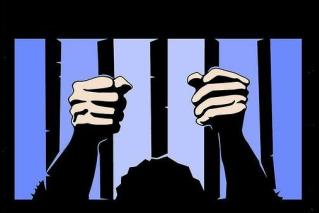 cc-by: vectorportal.com
cc-by: vectorportal.com
Ahead of a discussion on the proposed Counter-Terrorism Bill by the Ministerial Committee for Legislative Affairs, the Association for Civil Rights in Israel warns that this proposed law will severely damage human rights in Israel.
In a position paper prepared by ACRI, Attorney Lila Margalit, Director of the Human Rights in the Criminal Process Program, warns that this bill seeks to allow the state to take severe actions against persons and organizations, on the basis of suspicion alone and without trial or sufficient due process guarantees.
The bill is being considered as part of a government process aimed at cancelling the state of emergency in force since 1948 and replacing various emergency measures with modern anti-terror legislation. However, while the goal of canceling the state of emergency – prompted by a Supreme Court petition submitted by ACRI over a decade ago – is commendable and long overdue, in practice the bill seeks to normalize, and in some cases aggravate, draconian emergency provisions and defense regulations dating back to the British Mandate.
According to Attorney Margalit, “There is no question that the state must protect the security of its citizens and act to prevent acts of terrorism. But sixty-five years after the establishment of the state, the time has indeed come to cancel the draconian emergency legislation and defense regulations. Instead of engaging in substantial reform however, this bill enshrines what are essentially emergency powers in permanent, modern legislation and grants the government wide-ranging authorities that open the door to the violation of the rights of innocent people.
Among the dangerous practices included in the bill are:
- Severe violations of freedom of expression: for example, the imposition of a three year prison sentence on anyone who “publicly performs an act expressing solidarity with a terrorist group, including by publishing praise, support or sympathy, raising their flag, displaying their logo or displaying, playing aloud or advertising their slogan or anthem.”
- Authority to detain and place conditions on suspects based upon classified suspicions without the benefit of a trial. The provision of the power to arrest people under administrative detention – without trial and based only on unpublished and confidential suspicions – will be entrenched in permanent legislation.
- Setting broad and sweeping definitions of such terms as “terrorist organization”, “member of a terrorist organization” and “terror act”. The ambiguity of many of the definitions and their broad scope create uncertainty as to how they will be interpreted and applied in practice. In practice, such broadly defined terms give the government extremely broad discretion as to the question of “who is a terrorist”.
- The extensive use of classified material. Many proceedings including administrative detention, the declaration of an organization as a “terror organization” and property forfeiture proceedings can be based upon undisclosed secret evidence. This does not allow suspects to meaningfully defend themselves against serious accusations.
- Providing draconian powers for the investigations of security-related suspects. These include provisions, currently enshrined in temporary legislation, that allow a suspect to be detained up to 96 hours without being brought before a judge and have his detention extended, in certain cases, even in his absence. Given that security suspects can be denied the right to meet an attorney for up to 21 days, these provisions constitute a severe denial of suspect’s right to fair treatment and open the door to the use of torture and other abuses.
This bill creates a broad and sweeping framework that unreasonably expands the scope of criminal law and threatens to transform innocent people and organizations into “terrorists” according to the law. It gives uncontrolled and unsupervised authority to the authorities to take extreme measures against persons and organizations without a trial. It allows violations of freedom of expression and opens the door to improper interference by the state in political discourse. Moreover, the bill seeks to “normalize” the improper use of administrative detention orders and make them an integral and permanent part of modern Israeli legislation.
New legislative initiatives on this issue must fit into the constitutional principles set out in the Basic Law: Human Dignity and Liberty and the principles of international law to which Israel is obligated. As a result, ACRI calls upon the members of Knesset to oppose this bill in its current form.
Related Materials
ACRI’s Position Paper on the Counter-Terrorism Bill.







